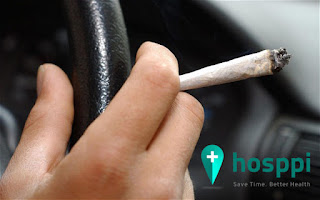Health Checkup
HEALTH CHECKUPS
From the moment we are born, and even before, we undergo a variety of tests to ensure we are on the right track to good health. As we get older, many of us become more vulnerable to illness. In order to reduce this risk, a number of health checks or screening tests are recommended at different stages of our lives.
From the moment we are born, and even before, we undergo a variety of tests to ensure we are on the right track to good health. As we get older, many of us become more vulnerable to illness. In order to reduce this risk, a number of health checks or screening tests are recommended at different stages of our lives.
What is a
health check?
The aim of a health check is to help find,
prevent or lessen the effect of health issues. It involves the use of tests,
physical examinations or other procedures to detect disease early in people who
look or feel well. Early detection, followed by treatment and good control of
the condition can result in better outcomes, and lowers the risk of serious
complications.
What is
the Importance of Health checkup?
Regular health exams and tests can help find
problems before they start. They also can help find problems early, when
chances for treatment and cure are better. By getting the right health
services, checkups, and treatments, chances for living a longer and healthier
life increases. Age, health and family history, lifestyle choices, and other
important factors impact what and how often one needs healthcare. A health
check-up is not just a panel of clinical tests but an opportunity for us to
learn about our body along with gaining inspiration to improve the quality of
life.
What can a
health check involve?
A
health check generally involves:
·
Updating ones medical history and examining
their health issues
·
Performing tests if required
·
A follow up of any problems identified
·
Advice and information on how to improve their
health.
Pros and
Cons of Health Checkups
Pros:
·
Prevention
is better than cure: When one gets to know about a disease early,
chances of getting better increases. Treatment processes can be carried on
smoothly. The later the disease gets detected; one may need to go through more
painful treatment procedures and surgeries. Thus healing process may be longer
than what one has expected.
·
Cut
healthcare costs: Checkups could also save plenty of money in
the long run as they help to minimize the risk of potential health issues that
will lower the risks for surgery or more extensive medical care in the future.
·
More
productive at work: When one has a healthy body and mind, more
productivity at work can be seen. One need not take leaves for seeing doctors
time and again.
·
Checkups
can save lives
Cons:
- Checkups
can produce anxiety, discomfort, and exposure to radiation and chemicals.
- A
false positive can be stressful and lead to additional expensive tests and
possibly unnecessary treatment. Whereas a false negative, creates a
misleading sense of security that could delay a definitive diagnosis.
- Checkups
may give a feeling, of being well taken care of and thereby reduce
motivation to take responsibility for one’s own health.
Types of Health Checkups:
There are
a number of health checks recommended at different stages of life.
Health checks for:
·
Preconception & pregnancy
I.
Pap test
II.
Dental check
III.
Immunization status check
IV.
General health and blood tests
·
Newborns and children
I.
Newborn tests and measurements
II.
Baby and child health checks
III.
Childhood Immunizations
·
20s and 30s
I.
Blood pressure
II.
Cholesterol and glucose levels
III.
Pap tests and pelvic exams
IV.
Dental check and cleaning
V.
Skin cancer check
VI.
Sexually transmitted infections (STI)
screenings
VII.
Testes examination
VIII.
Healthy weight assessments
·
40s
I.
Eye check
II.
Breast checks
III.
Health assessment for people who are at risk
of developing chronic disease
IV.
Health assessment for people with a high risk
of developing type 2 diabetes
V.
Prostate check
·
50s and later
I.
Breast check and mammogram
II.
Bone density scan
III.
Fecal occult blood test (FOBT)
IV.
Hearing assessment
For more info Visit: www.hosppi.com




Comments
Post a Comment